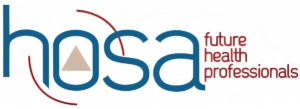When I entered high school, I had no idea what AP classes were. Everyone was talking about Advanced Placement and what exactly went on in these classes. (Okay, so nobody was actually talking about them, but in my mind’s version of freshman year they certainly were.) For anyone who hasn’t come across the terminology, AP courses are accelerated programs that culminate in a test administered by a company called The College Board that also administers the SAT test. They are designed to teach high school students specific subjects that may exempt them from taking those courses in college. The idea is that these courses are taught at the collegiate level, and so prepare a student for a career or graduate school the same as a college course would. Because I’m sure everyone’s experience is different I won’t be talking about the degree to which I think this is true, but will stick with my own experiences regarding the policies of the universities that I’ve interacted with. Your mileage may vary!
It’s important to note several things. These tests cost around $90 each, but taking the course doesn’t usually mean that you must take the test. Also, The College Board has fee reduction programs in place for those with financial need. Scores are given from 1-5, and colleges accept tests for credit with different score cutoffs. Most universities list what they accept online.
After taking my fair share of pre-AP and AP courses, I’ve discovered a few ways in which they’re different from non-AP high school courses. For example, in my AP courses, there seemed to be less paperwork, but more group work. Less lecture time, but more research time. The class resembled somewhat more closely what might occur in a collegiate setting, with more independent and peer-reviewed critical thinking. For me, it was good practice for the less supervised environment of the university. But, on to scoring and credit.
Score reports are made available to students (and the universities that the student indicated on the exam) in July. Additional score reports can be sent later for a fee. The scores range from 1 (no recommendation for credit) to 5 (extremely well qualified in the subject). As with letter grades, it seems to me that most people get a 3, with fewer receiving a 2 or 4 and fewer still receiving a 1 or 5. It’s comforting news, then, that many postsecondary schools accept AP scores of 3 or higher for credit. Note that the more challenging a university’s curriculum is (or at least the more challenging they think themselves to be J) the higher the cutoff, with many of the Ivy League schools only accepting scores of 4 or higher or in some cases only 5s. Many universities vary in what they accept from course to course based on how highly they weigh the subject matter. NYU’s Stern School of Business, for example, typically accepts scores of 4 or higher for credit, but will only accept a score of 5 for AP Macroeconomics credit. Which brings us to a question: how should we, as students, approach using AP credit?
My advice comes with many caveats, but it’s essentially this: if a course is a prerequisite for another course or if it’s required for a special track (pre-health, pre-law, etc.), then I do not recommend that you plan to use AP credit to skip it. Courses that pre-health students typically like to skip include Chemistry 101, Biology 101, and Calculus 101. For a pre-health student, upper-level chemistry and biology courses (including the dreaded Organic Chemistry) are taught based on what is taught in these foundational courses. For this reason alone I would recommend that they not be skipped. The reason why pre-professional courses (usually including those 3 mentioned above) shouldn’t be skipped is because professional schools are looking for mastery in these fields, and while “placing out” of a course may seem to appear impressive, these schools would much rather accept students that have completed all of their requirements at the “true” collegiate level.
With those specific courses aside, AP credits are a great way to opt out of other required courses (I was able to skip 2 high-density foreign language courses at NYU with my AP German credit – “sehr gut!”) Foundational English and history classes can quickly fill up a freshman pre-health schedule, but with properly placed credits you can get a great head start on courses required for a minor or even a double major.
So with all this talk about which classes shouldn’t be skipped, should pre-health students even bother taking courses like AP Chemistry and AP Biology? My answer here is much simpler: “Yes!” Regardless of whether or not you plan to use AP credit, the courses do give you a good sense of how a subject will be approached in a university setting. I feel that AP Chemistry better prepared me for Chem 101 than a non-AP course. The biggest fear that I think pre-health students have surrounding AP is that they may receive a lower letter grade in an AP course than in a non-AP course. This is a distinct possibility, but universities are not only looking for a high GPA, but also for students who have challenged themselves and shown distinct interest in a particular area of study. The combination of AP credit and a student who has consistently challenged himself or herself is an attractive candidate for college admission. In much the same way, the combination of, for example, a good or great AP Chemistry score and (what is thus likely to be) a high grade in Chem 101 is better than either on its own.
In conclusion, I should say that while this makes it sound like regardless of credit you should sign up for every AP course that is offered at your high school, you should pace yourself and be selective about what you choose to pursue. If you struggle in a particular subject, perhaps a non-AP course would serve you better on your way to a strong foundational knowledge for college courses. But university is all about finding what you’re passionate about – and running with it. Why not get a head start?


